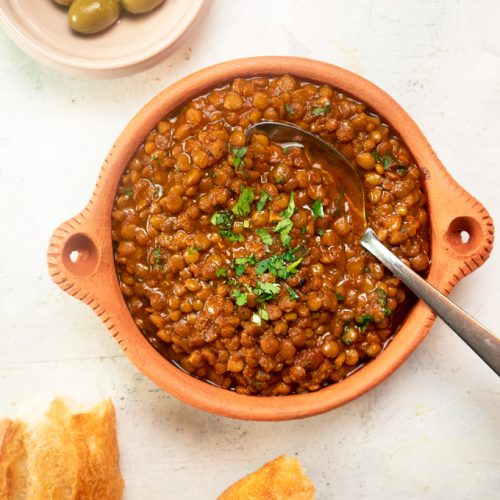The Rich History of Jews in Morocco
For centuries, the Jewish community has been an integral part of Morocco’s diverse cultural tapestry. The history of Jews in Morocco dates back over two thousand years, making it one of the oldest Jewish communities in the world outside of Israel.
Ancient Roots
Historical records indicate that Jews first settled in Morocco during the Roman Empire’s rule. Over time, Jewish communities flourished in various cities across the country, contributing to its vibrant social and economic life.
Golden Age and Coexistence
During the Islamic Golden Age, which spanned from the 8th to the 13th century, Jews in Morocco enjoyed a period of relative peace and prosperity. They played key roles in trade, finance, and cultural exchange, fostering a spirit of coexistence with their Muslim neighbours.
Impact of Spanish Expulsion
In 1492, following the Spanish Inquisition and the expulsion of Jews from Spain, many Sephardic Jews sought refuge in Morocco. This influx enriched Moroccan Jewish culture with new traditions and customs, further shaping its identity.
Modern Challenges and Resilience
In more recent history, political changes and global events have posed challenges to Morocco’s Jewish community. Despite this, Moroccan Jews have demonstrated remarkable resilience, preserving their heritage and traditions while contributing to the country’s social fabric.
Cultural Legacy
Today, remnants of Morocco’s Jewish heritage can be found in its historic synagogues, traditional music infused with Hebrew influences, and culinary delights such as couscous prepared for special religious occasions. The legacy of Jews in Morocco continues to shape the country’s identity.
Exploring the Rich Heritage and Resilience of Morocco’s Jewish Community
- The Jewish community in Morocco has a rich and diverse history spanning over two thousand years.
- Moroccan Jews played significant roles in trade, finance, and cultural exchange during the Islamic Golden Age.
- The influx of Sephardic Jews into Morocco following the Spanish expulsion in 1492 enriched the country’s Jewish culture.
- Despite challenges, Moroccan Jews have shown remarkable resilience in preserving their heritage and traditions.
- Remnants of Morocco’s Jewish heritage can be seen in historic synagogues, music with Hebrew influences, and traditional culinary practices.
Challenges in the History of Jews in Morocco: Persecution, Integration Issues, Population Decline, and Loss of Heritage
The Jewish community in Morocco has a rich and diverse history spanning over two thousand years.
The Jewish community in Morocco boasts a rich and diverse history that spans over two millennia. From ancient roots dating back to the Roman Empire to enduring through the Islamic Golden Age and the challenges of modern times, Moroccan Jews have played a significant role in shaping the cultural fabric of the country. Their presence has contributed to Morocco’s social, economic, and cultural landscape, leaving a lasting legacy that continues to be celebrated and cherished today.
Moroccan Jews played significant roles in trade, finance, and cultural exchange during the Islamic Golden Age.
During the Islamic Golden Age, Moroccan Jews made substantial contributions to various aspects of society, including trade, finance, and cultural exchange. Their active involvement in these domains not only enriched Morocco’s economic landscape but also fostered a spirit of cooperation and mutual understanding among different communities. By participating in trade networks, managing financial transactions, and engaging in cultural exchanges, Moroccan Jews helped create a dynamic and diverse society that thrived on collaboration and shared prosperity.
The influx of Sephardic Jews into Morocco following the Spanish expulsion in 1492 enriched the country’s Jewish culture.
The influx of Sephardic Jews into Morocco following the Spanish expulsion in 1492 significantly enriched the country’s Jewish culture. This migration brought new traditions, customs, and a diverse range of practices that blended with the existing Moroccan Jewish community. The fusion of Sephardic heritage with local customs created a unique tapestry of rituals, music, and culinary delights that continue to shape the vibrant mosaic of Morocco’s Jewish identity to this day.
Despite challenges, Moroccan Jews have shown remarkable resilience in preserving their heritage and traditions.
Despite facing various challenges throughout history, Moroccan Jews have exhibited remarkable resilience in safeguarding their heritage and traditions. From navigating political changes to adapting to societal shifts, the community has demonstrated a steadfast commitment to preserving its cultural identity. Through their perseverance and dedication, Moroccan Jews have not only upheld centuries-old customs but have also enriched the country’s cultural landscape with their unique contributions.
Remnants of Morocco’s Jewish heritage can be seen in historic synagogues, music with Hebrew influences, and traditional culinary practices.
The enduring legacy of Morocco’s Jewish history is palpable in the country’s cultural landscape. From the ornate architecture of historic synagogues to the melodies of traditional music carrying Hebrew influences, and the aromas of cherished culinary practices like preparing couscous for special occasions, these remnants serve as poignant reminders of the deep-rooted connection between Morocco and its Jewish community.
Persecution
Persecution has been a dark shadow in the history of Jews in Morocco, casting a long and harrowing legacy of discrimination and hardship. Across various periods, Moroccan Jews have endured persecution that threatened their very existence and challenged their ability to uphold their cultural identity. From oppressive laws to social ostracism, these challenges have tested the resilience of the Jewish community in Morocco, highlighting the enduring struggle for acceptance and preservation of their rich heritage amidst adversity.
Integration Issues
Integration Issues: Despite efforts towards coexistence, there have been instances of tension and conflicts between the Jewish community and other groups in Morocco. Historical factors, cultural differences, and geopolitical influences have at times created challenges to the harmonious integration of the Jewish community within the broader Moroccan society. While many strides have been made towards fostering understanding and mutual respect, ongoing issues highlight the complexities of building lasting unity among diverse communities in Morocco.
Population Decline
In recent decades, the Moroccan Jewish community has faced a significant challenge in the form of population decline. Factors such as emigration to other countries and decreasing birth rates have led to a gradual decrease in the overall number of Moroccan Jews. This decline not only affects the size of the community but also impacts its vitality and cultural continuity. Efforts to address this trend and preserve the rich heritage of Jews in Morocco are crucial to ensuring the community’s legacy endures for future generations.
Loss of Heritage
One significant con of the history of Jews in Morocco is the potential loss of heritage. As younger generations assimilate into broader society or choose to move abroad for various reasons, there exists a real risk of certain aspects of traditional Jewish culture in Morocco being lost or diluted over time. The rich tapestry of customs, rituals, and language that have been preserved for generations may face challenges in maintaining their authenticity and continuity as the community evolves and disperses.




